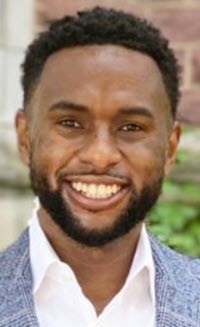Abstract
Excerpted From: Daniel S. Harawa, NYSRPA V. Bruen: Weaponizing Race, 20 Ohio State Journal of Criminal Law 163 (Fall, 2023) (97 Footnotes) (Full Document)
 I steeled myself as I prepared to read New York State Rifle & Pistol Association v. Bruen. Not because I was unsure of how the Supreme Court would rule--it seemed clear that the Court would hold that New York's concealed handgun permitting regime violated the Second Amendment. Rather, I worried because if past is prologue, the Court was going to weaponize race in reaching its decision.
I steeled myself as I prepared to read New York State Rifle & Pistol Association v. Bruen. Not because I was unsure of how the Supreme Court would rule--it seemed clear that the Court would hold that New York's concealed handgun permitting regime violated the Second Amendment. Rather, I worried because if past is prologue, the Court was going to weaponize race in reaching its decision.
Bruen did not disappoint. In its modern Second Amendment jurisprudence, the Court--with its most conservative members writing--has consistently appropriated a racial justice angle in its efforts to reshape the scope of Second Amendment rights. Bruen continued this trend.
While the Court has weaponized race--particularly America's history of anti-Black racism--to expand the reach of the Second Amendment, it has not sought to ensure Black people have equal access to the right to bear arms now that the right is broader than ever before. More pointedly, the Court has not seemed keen on revisiting its Fourth Amendment policing doctrines that make public carry for Black people particularly precarious. For instance, the Supreme Court has not curbed police officers' practically boundless ability to stop and frisk people on the street. Nor has the Court rethought the standard governing police use of force, even though it largely inoculates police violence from any meaningful scrutiny. And the public carry of firearms, particularly by Black people, will likely both exacerbate the number of stop-and-frisks they face, and increase the risk that police will use deadly force against them. In short, while expanding the scope of the Second Amendment right to bear arms, the Court has shown no appetite to address related jurisprudence that makes the bearing of arms more dangerous for Black people.
Moreover, while the Court cherry-picked from America's racist history of disarming Black people as one reason to refashion Second Amendment rights, the Court has never acknowledged that gun control was also historically used to disarm white people prone to racial violence. It would have been nice for the Court to at least give a head nod to this history in light of the recent mass-killings of people of color by white supremacists, showing that the threat of racialized violence is not just historical, it's evergreen. And besides providing an incomplete historical picture, the Court has also refused to grapple with what expanding Second Amendment rights portends for Black people today.
As this essay explains, itinerant invocations of racial justice are inadequate and potentially harmful. While, as some argued, the total elimination of gun licensing regimes may result in the reduced prosecution of Black people for simple handgun possession (although it's important to note that Black people are disproportionately prosecuted for violating other gun laws), it also creates a whole new racial justice threat from law enforcement. Without serious revisions to Fourth Amendment policing doctrines, along with a real reckoning with the anti-Blackness endemic to America (but not only to America), Black people will never bear arms the same as white people. Or put differently, if a Black person does decide to carry a gun as freely as a white person, it will be at their peril.Bruen invokes racial justice without considering the full picture of America's racial in justice.
In many ways, the modern Second Amendment landscape is just another vignette in the elusive quest of Black people trying to fully realize their equal citizenship. After Bruen, the struggle gets more complicated.
[. . .]
Before Bruen came out, I wrote that no matter what happens, Black people stand to lose. Here we are. We lose because we have a Court that's invoking race when convenient but ignoring it when not. We lose because, while itinerantly invoking racial justice, the Court is at the same time hurriedly working to dismantle race-conscious protections designed to ensure Black Americans' full and equal citizenship. We lose because the Court has stripped us of our agency, depriving Black people (and all others) of the democratic power to enact laws that best serve our interests. We lose because whatever the scope of the Second Amendment, the scope will always be more limited for Black people. So much for racial justice.
Associate Professor of Law, Washington University in St. Louis.


